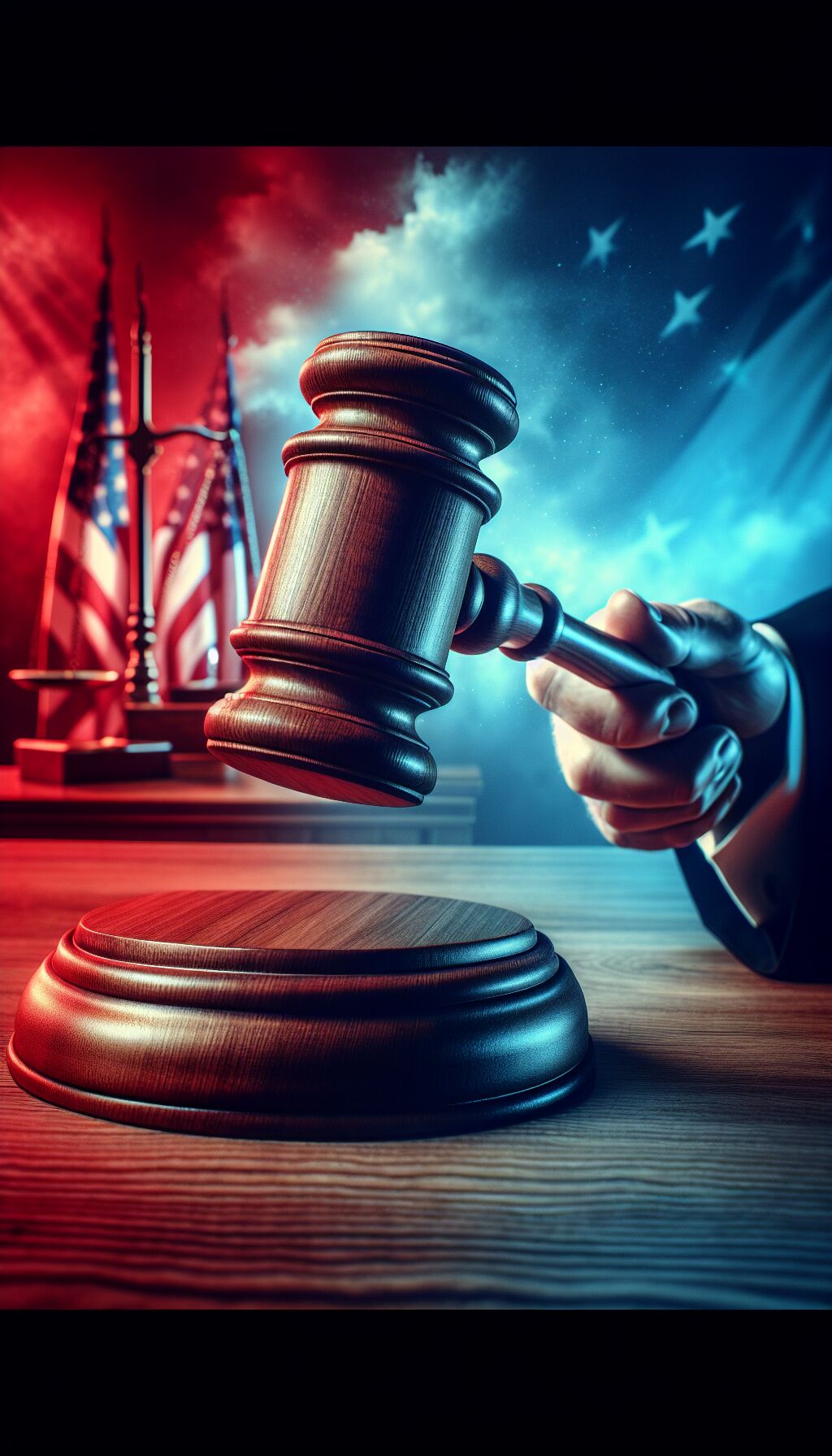Trump’s Legal Team Moves to Dismiss Charges in New York Case
Lawyers for President-elect Donald Trump have formally requested the dismissal of charges against him in the high-profile case New York v. Trump, asserting that the case is a product of “failed lawfare” and “should never have been brought.”
Legal Arguments for Dismissal
In an official motion submitted to the court on Monday, Trump’s legal team emphasized the necessity of an immediate dismissal. “President Donald J. Trump respectfully submits this motion to dismiss the Indictment and vacate the jury’s verdicts,” the attorneys stated. They pointed to several legal doctrines, including the Presidential immunity doctrine, the Presidential Transition Act, and the Supremacy Clause, arguing that these principles mandate an immediate dismissal of the case.
Linking Biden’s Actions and Political Motivations
As part of their justification, Trump’s attorneys invoked recent comments made by President Biden regarding the pardon granted to his son, Hunter Biden. They quoted Biden’s assertion that his son was “selectively and unfairly prosecuted,” which they argued serves as a condemnation of the Department of Justice’s actions against Trump.
“Yesterday, in issuing a 10-year pardon to Hunter Biden that covers any and all crimes whether charged or uncharged, President Biden asserted that his son was ‘treated differently,’” Trump’s team noted. They continued, suggesting that Biden’s remarks indicate a broader issue within the DOJ that has been “infected by raw politics,” leading to what they claim is a miscarriage of justice.
Political Interference Allegations
Trump’s legal representation contended that the ongoing prosecution is symptomatic of a greater issue of political interference. They claimed that the same Department of Justice that oversees the New York case also liaised with DA Bragg to unfairly target Trump, characterizing the case as a “lawless” pursuit driven by political motivations.
In a statement following the filing, Trump spokesman and incoming White House communications director Steven Cheung asserted, “President Trump and his legal team have filed a powerhouse motion to dismiss once and for all the unconstitutional and politically motivated Manhattan DA Hoax.” He urged the court to consider the motion as an opportunity to unify the nation behind Trump in preparation for his duties following the election.
Allegations of Legal Hurdles
In their motion, Trump’s attorneys claimed that New York v. Trump is built upon a “contrived, defective, and unprecedented legal theory” concerning 2017 documentation that was maintained far from the White House. They argued that there are no legitimate aggravating factors in the case other than alleged misconduct by DA Bragg, suggesting that this prosecution is inappropriate amid a crisis of violent crime in New York City.
“Thus, this case should never have been brought, particularly during a period when DA Bragg’s failure to protect this City from pervasive violent crime frightens, threatens, and harms New Yorkers on a daily basis,” they wrote in their filing.
Implications for Presidential Power
Trump’s lawyers further stated that the continued legal proceedings interfere with his transition to presidency and disrupt the full execution of his constitutional powers. They stressed that the Supreme Court’s ruling on presidential immunity should shield Trump from such legal challenges.
“Local elected officials such as DA Bragg have no valid basis to cause such disruptions,” they argued. “Consequently, the federal Constitution is an absolute legal impediment to further proceedings, and the case must be immediately dismissed.”
Response to Previous Rulings and Context
The motion to dismiss follows recent developments, including the dismissal of charges against Trump in another federal case related to 2020 election interference. The Special Counsel’s Office has had to adjust its legal strategies in light of recent decisions by federal judges, leading Trump’s team to bolster their defense against Bragg’s actions.
Additionally, DA Bragg last month proposed to stay the case until the conclusion of Trump’s second term, but Trump’s lawyers rejected this as untenable. “Bragg’s ridiculous suggestion that they could simply resume proceedings after President Trump leaves Office… is not an option,” they stated.
The Charges and Their Legal Background
Trump has pleaded not guilty to 34 counts of falsifying business records that stemmed from a years-long investigation into alleged hush money payments. This investigation was initially launched by former Manhattan District Attorney Cyrus Vance, and it has continued to generate significant political and legal controversy.
The case has already seen substantial courtroom drama, as a jury found Trump guilty on all counts after a six-week trial. The outcome solidifies the contentious nature of the accusations and the polarized reactions they entail across the political landscape.
Next Steps and Speculations
Looking ahead, the resolution of the motion to dismiss could bear significant implications for Trump’s legal position and his ability to undertake presidential duties. The outcome may well influence the public’s perception of the legal system’s role in political contestations—not only in the context of Trump’s situation but in how similar cases might unfold in the future.
As the legal battle continues, analysts and observers remain watchful of how this challenge could impact Trump’s political ambitions and the broader landscape of American governance.










